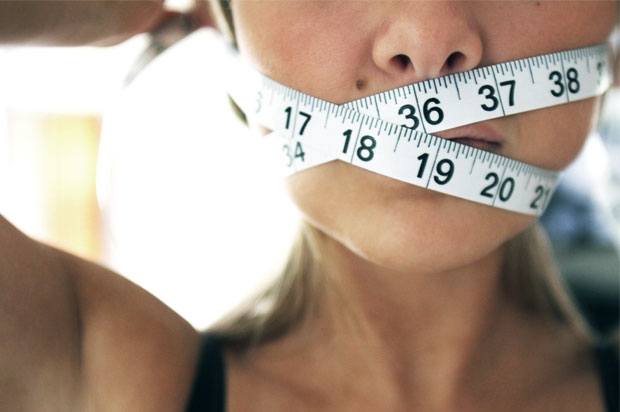Eating disorders explained
How do you get one - and what are they anyway? Learn the basics about eating disorders.

Talking about eating disorders can be tricky.
What is an eating disorder?
An eating disorder is a mental health condition that stems from both emotional and psychological distress, and results in an obsessive relationship with food in terms of over- or under-eating. Having the ability to control the amount and type of food consumed makes sufferers believe that they are coping with their problems and offers them a way to block out painful feelings.
Common eating disorders
- Anorexia: Someone with anorexia nervosa is preoccupied with worries about eating, body weight or body shape. Behaviours such as eating very little or over-exercising can lead to them losing a lot of weight.
- Bulimia: Someone with bulimia nervosa also worries a lot about body weight and body shape. They alternate between eating next to nothing, and then having binges when they over-eat and feel out of control. They may vomit or take laxatives to control their weight.
- Binge Eating Disorder (BED): Someone with binge eating disorder has frequent episodes of binge eating, often feeling out of control, uncontrollably full or ashamed.
- Eating Disorder Not Otherwise Specified (EDNOS): Someone who has some, but not all, of the diagnostic signs for anorexia, bulimia or BED.
Who gets eating disorders?
In a word – anyone. Generally, they are most common with girls and young women, but that doesn’t mean that older women, boys or men are exempt. The most common age to suffer from an eating disorder is 15 and 25. Eating disorders can affect young people of all backgrounds and cultures.
People with stressful lives and high expectations placed on them often focus on food as a way to divert their attention away from these strains. Likewise, traumatic events such as bereavement, bullying and family problems could also act as a trigger.
Whatever the cause, some things are certain about eating disorders: they are not just a ‘teenage phase’; they do not develop as a result of rebellion or defiance and they are not something that sufferers can just snap out of.
So how can I help someone with an eating disorder?
People with eating disorders may try to hide their condition. If you know there’s a problem, the most effective thing you can do is offer your support and encourage them to get help. Here are some of the signs to watch out for:
- Skipping meals or becoming obsessive about calorie content.
- Sticking to very low-calorie foods.
- Sudden loss or gain in weight.
- Behaving defensively when asked about food consumption.
- Wearing loose clothes to disguise body shape.
- Disappearing from the table straight after meals (to make themselves sick).
How can I help myself?
Eating disorders can be overcome. If you notice any symptoms, it’s always best to seek help early on. It can be easier to make changes which will lead to a speedier recovery.
Recovery is still possible even after years of illness, but first you have to accept that you have an eating disorder. It might help to:
- Talk to someone you trust – a family member, a doctor, friend or a trained counsellor
- If your doctor can’t help, find another doctor or contact Beat.
- Ask to be referred to a dietitian, or therapist.
Treatment tends to combine dietary and nutrition advice along with a talking therapy which gives you space to explore your difficulties and address any underlying problems.
Next Steps
- Beat help people overcome eating disorders through helplines, online support and self-help groups. Call 0808 801 0677 or, if you're under 18, call their Youthline on 0808 801 0711.
- Men get eating disorders too (MGEDT) run discussion boards for men with eating disorders where you can get peer support.
- Chat about this subject on our Discussion Boards.
By
Updated on 28-Jun-2016
No featured article










